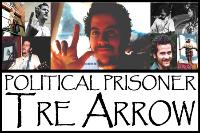Sunday, May 17
"FEAR" and Civil Asset Forfeiture in the United States
of laws from within the forfeiture program)
Here's a wager for you: FOX News Network has never reported on the rampant confiscation of property of Americans never charged with a crime.
In April 2000, Forfeiture Endangers American Rights (FEAR), a California-based educational and public advocacy 501(c)(3) nonprofit, was instrumental in partially rectifying the rampant but legal confiscation of property by championing the nation's first federal legislation to reform civil asset forfeiture abuses by law enforcement officials around the U.S.
According to a 1994 report by PBS drug war correspondent Kyla Dunn on abuses in federal asset forfeiture
According to a report prepared for the Senate Judiciary Committee, at least 90 percent of the property that the federal government seeks to forfeit is pursued through civil asset forfeiture. And although forfeiture is intended as punishment for illegal activity, over 80% of the people whose property is seized under civil law are never even charged with a crime according to one study of over 500 federal cases by the Pittsburgh Press. For this reason, critics say, the system can run roughshod over the rights of innocent property owners--and fail to distinguish them from the guilty.The Civil Asset Forfeiture Reform Act of 2000 (CAFRA) simply reaffirmed basic constitutional rights we wrongly assumed existed for those innocent of any crime. CAFRA required the federal government
- must prove its case;
- is liable for damages to seized property; must return property to owners pending trial when possession would cause substantial hardship;
- may no longer require an owner to pay 10% cost bond just to contest the forfeiture in court;
- can no longer forfeit property from owners who prove their innocence; and
- must appoint counsel to some indigent claimants.
Amtrak Snitches on Americans
To circumvent CARFA's commonsense provisions, the feds also sought our some unusual
recruits to enlist int he "war on drugs." For example, the cash-strapped and underfunded public train system Amtrak have signed up with the DEA for 10% "revenue sharing."
The 24 June 2001 issue of the St. Petersburg Times (FL) reported this story:
Amtrak, the financially struggling national passenger rail system, has found a new way to generate revenue: by snitching.Updated 2007 FEAR noticesIn return for sharing its passenger manifest with the Drug Enforcement Administration, Amtrak gets a bounty of 10 percent of any seizures made from its trains. DEA agents use the information provided by the railroad to determine which passengers fit a "drug courier profile." Riders unlucky enough to have paid for their tickets with cash or purchased tickets at the last minute are questioned by federal agents who board the train at the Albuquerque, New Mexico stop. If one of these travelers is carrying a substantial amount of cash, DEA agents confiscate it as a drug asset and Amtrak takes 10 percent off the top.
The abuses of civil forfeiture -- in which police agencies profit by confiscating money and property in the name of drug control -- are so widely known even a Republican-controlled Congress felt the need to address some of them, last year passing the Civil Forfeiture Reform Act. But those changes came too late for On Hoang Thach, a Vietnamese immigrant with limited English who had $148,000 taken from him by federal agents as he was traveling from California to his home in Boston. According to his attorney, Penni Adrian of Albuquerque, Thach, 26, was singled out for questioning in February 2000 because he had a minority-sounding name, had paid for his one-way ticket with cash and didn't give a call-back number at the time of the reservation.
During the stop in Albuquerque, Thach was approached in his roomette by federal agents. The DEA says Thach gave an agent permission to search the fanny pack he was carrying. But attorney Adrian said Thach didn't understand what was happening.
After the $149,000 was found in the fanny pack, which Thach claimed was gambling proceeds, the bills were taken outside to a drug-sniffing dog. But the dog did not alert to the presence of drugs. So the agents tried again with a second dog. It finally provided the desired result. (Despite studies that show upward of 96 percent of all money in circulation is contaminated with drug residue, police use drug-dog alerts as a basis to claim the money is part of the drug trade.) Thach was not charged with a crime, but he has had to post a $5,000 bond and hire an attorney to help him get his money back. The federal trial is set for October.
Certainly it is unusual and suspicious for someone to be carrying that kind of cash, but there was no actual evidence of wrongdoing. Thach was carrying legal tender, that is before the agents relieved him of it. And no doubt Amtrak got its piece.
The organization updated its 2007 bulletin list in October 2008. Check out the listing below and see what law enforcement out in your neck of the woods are up to on asset forfeiture.
Indexed 2006 archive of FEAR-List Bulletins with full texts from linked articles follow the 2007 list.
January 2007 FEAR-List bulletins plus the following full text articles:
Sarisota Herald-Tribune:
Bradenton Police Department continues policy of bypassing court system by coercing victims into signing forfeiture contract waiving right to day in court.
May 2007, FEAR-List bulletins plus the following associated articles:
www.fear.org:
U.S. 3rd Circuit Court of Appeals, May 04, 2007:
NACDL:
www.fear.org:
U.S. 1st Circuit Court of Appeals, May 18, 2007:
State of Texas v. Soileau, No. 05-20501
June 2007, FEAR-List bulletins plus the following associated articles:
New York Law Journal:
U.S. 5th Circuit Court of Appeals, June 29, 2007:
July 2007, FEAR-List bulletins plus the following associated articles:
www.fear.org:
www.fear.org:
San Francisco Chronicle:
Los Angeles Times Editorial:
Fox40 News:
American Statesman:
New York Law Review:
www.fear.org:
The Florida Times-Unioin:
www.fear.org:
tenancy by the entireties law
U.S. 2nd Circuit Court of Appeals:
Athens NEWS - Ohio:
Pegasusnews.com:
Inquirer.net - Philippines:
October 2007, FEAR bulletins with associated articles:
www.fear.org:
Court rules sailboat formerly owned by the late President J. F. Kennedy is not subject to forfeiture:
Government had no right to sell the sloop, nor does it have any right to pocket proceeds from that sale.
November 2007, FEAR-list bulletins plus the following associated articles:
www.fear.org:
New York Court of Appeals, November 19, 2007 :
December 2007 FEAR-list bulletins plus the following associated articles:
www.fear.org:
Georgia Straight - Vancouver,British Columbia,Canada:
U.S. 5th Circuit Court of Appeals, November 19, 2007:
U.S. 9th Circuit Court of Appeals, December 21, 2007:
IBLS INTERNET LAW - Irvine,CA,USA:
District Court Virginia:
Star Tribune, Minneapolis:
Courier and Journal, Tippecanoe, Indiana:
Star-Tribune, Casper, Wyoming:
Tippecanoe Editorial:
Washington Continent:
Rep. John Conyers:
==
January-February 2006 FEAR-List bulletins plus full text of linked articles
We're presently indexing FEAR-List bulletins posted in 2006, please check back soon for additional months
Earlier FEAR-bulletin archives:
Prior Index to our archive of FEAR-List bulletins (may contain links to articles that are no longer available)
If you would like to volunteer to help index bulletins from prior years, please contact Judy Osburn.
2004 - January February March
2003 - Partially indexed
Selected bulletins from FEAR-List 1998
Archive of Early FEAR-List Bulletins -- 1994 - 1996
Archive of Early FEAR-List Bulletins -- 1994 - 1996











